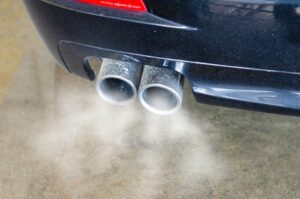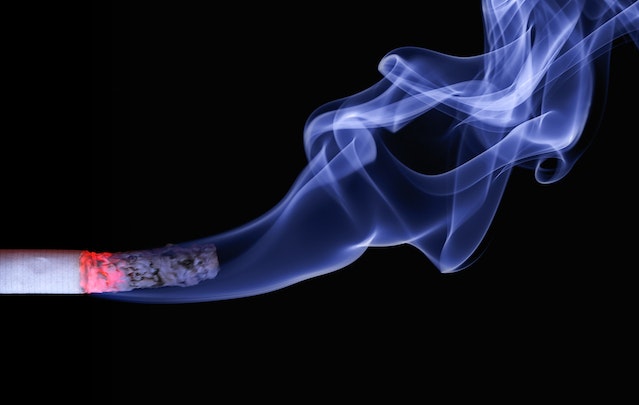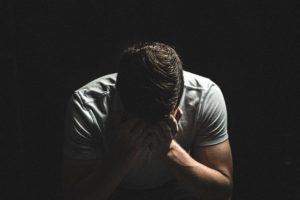Hair Loss: Environmental Risk Factors for Alopecia Areata You Might Never Know
Hair loss can often be an extremely distressing experience, affecting both men and women of all ages. While there are many known causes for this condition, such as genetics and hormonal imbalances, today we will explore some surprising environmental culprits you might have never considered. If you’ve been dealing with this issue, check the best hair loss treatment perth here. Now, keep on reading as we’re about to take a deep dive into the unexpected factors that could be contributing to your hair woes.
Car Exhaust Fumes
 Car exhaust fumes, those unpleasant emissions that spew out of vehicles on the road, may be more than just a hazard for our lungs – they could also play a role in hair loss. You might be thinking, “Wait, how is that even possible?” Well, let’s dig into the science behind it. When cars burn fuel, they release a cocktail of harmful chemicals into the air. These pollutants can infiltrate our environment and affect our bodies in various ways. One study found that exposure to car exhaust fumes can lead to oxidative stress in hair follicles. This oxidative stress disrupts the normal functioning of these follicles and contributes to hair loss.
Car exhaust fumes, those unpleasant emissions that spew out of vehicles on the road, may be more than just a hazard for our lungs – they could also play a role in hair loss. You might be thinking, “Wait, how is that even possible?” Well, let’s dig into the science behind it. When cars burn fuel, they release a cocktail of harmful chemicals into the air. These pollutants can infiltrate our environment and affect our bodies in various ways. One study found that exposure to car exhaust fumes can lead to oxidative stress in hair follicles. This oxidative stress disrupts the normal functioning of these follicles and contributes to hair loss.
But it doesn’t stop there – car exhaust fumes can also impact the production of key proteins responsible for healthy hair growth. Research suggests that certain components present in vehicle emissions can interfere with protein synthesis within the scalp, leading to weakened and thinning strands.
Dust Particles
Dust particles may seem pretty common and harmless, but they can actually be one of the hidden culprits behind hair loss. These tiny particles are everywhere – floating in the air, settling on surfaces, and even finding their way into our lungs. When it comes to our hair health, dust particles can wreak havoc by clogging up our hair follicles. This blockage prevents proper blood circulation and nutrient supply to the hair roots, leading to weakened strands and, eventually, hair loss. Furthermore, dust particles can also contribute to scalp inflammation and irritation. The accumulation of dirt and debris on the scalp creates an ideal environment for bacteria and fungi growth, which can further exacerbate conditions like dandruff or scalp infections that result in hair fall.

Cigarette Smoke
Ah, the unmistakable smell of cigarette smoke. It wafts through the air, clinging to everything it touches. But did you know that this seemingly harmless odor could be a potential risk factor for alopecia areata? Yes, that’s right – smoking cigarettes can contribute to hair loss. When a person smokes, they inhale thousands of harmful chemicals into their lungs. These toxins not only affect the respiratory system but can also have detrimental effects on other parts of the body, including the hair follicles. The chemicals in cigarette smoke disrupt the normal functioning of hair follicles and impede their ability to produce healthy strands of hair. Over time, these damaged follicles may result in thinning or complete loss of hair. In fact, if you’re constantly exposed to secondhand smoke from others around you who light up frequently, your chances of developing alopecia areata significantly increase.
Over Exposure to the Sun
Overexposure to the sun is not only a risk factor for skin damage and cancer, but it can also contribute to hair loss. Most people are aware of the harmful effects of UV radiation on their skin, but few consider its impact on their hair. When your scalp is exposed to excessive sunlight for prolonged periods without protection, it can lead to a condition called solar dermatitis. This inflammation damages the hair follicles and disrupts normal hair growth cycles. As a result, you may experience increased shedding or even patches of baldness. Furthermore, exposure to ultraviolet (UV) rays weakens the protein structure in your hair strands. This makes them more susceptible to breakage and thinning over time. Additionally, excess sun exposure can cause dryness and brittleness in both your …



 One of the most important things you can do after a loved one dies is to allow yourself time to mourn. This means allowing yourself to feel the pain, sadness, and grief of losing someone you love. It is also essential to understand that there is no right or wrong way to mourn. Everyone grieves in their own way and at their own pace. So, do not compare your grief to anyone else’s. You may find yourself feeling better one day and then feeling worse the next. This is normal. Just know that giving yourself time to grieve is okay and that eventually, the pain will start to lessen.
One of the most important things you can do after a loved one dies is to allow yourself time to mourn. This means allowing yourself to feel the pain, sadness, and grief of losing someone you love. It is also essential to understand that there is no right or wrong way to mourn. Everyone grieves in their own way and at their own pace. So, do not compare your grief to anyone else’s. You may find yourself feeling better one day and then feeling worse the next. This is normal. Just know that giving yourself time to grieve is okay and that eventually, the pain will start to lessen. Bottling up your emotions can be harmful to your mental health. If you find yourself struggling to cope, consider talking to a therapist. A therapist can help you to process your emotions and work through the pain. They can also provide you with tools and resources to help you in your healing process. If you do not feel like talking to a therapist, consider talking to a friend or family member who will understand and be there for you. Death is never easy. However, by following these tips, you can start to cope with the pain and eventually heal. Just remember to give yourself time, be wary of thoughts derail your healing process, take care of your well-being, and talk to a therapist if you need to. In addition, talking to someone about your feelings can help you to feel better and start to heal. So, do not be afraid to reach out for help when you are struggling. These things will help you to move forward after your loved one dies.…
Bottling up your emotions can be harmful to your mental health. If you find yourself struggling to cope, consider talking to a therapist. A therapist can help you to process your emotions and work through the pain. They can also provide you with tools and resources to help you in your healing process. If you do not feel like talking to a therapist, consider talking to a friend or family member who will understand and be there for you. Death is never easy. However, by following these tips, you can start to cope with the pain and eventually heal. Just remember to give yourself time, be wary of thoughts derail your healing process, take care of your well-being, and talk to a therapist if you need to. In addition, talking to someone about your feelings can help you to feel better and start to heal. So, do not be afraid to reach out for help when you are struggling. These things will help you to move forward after your loved one dies.…